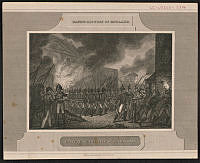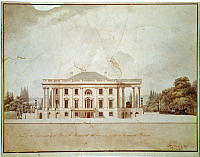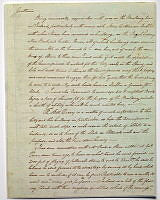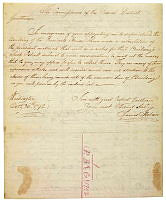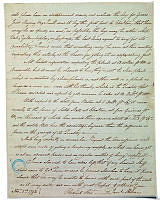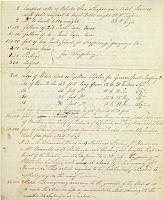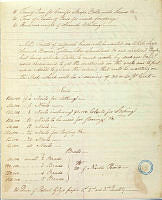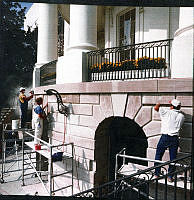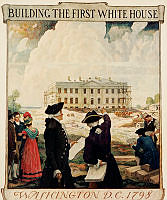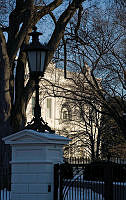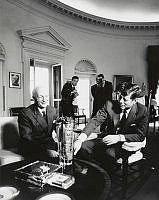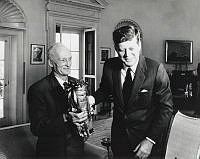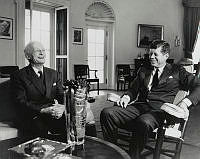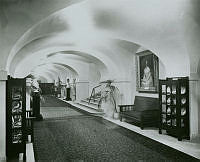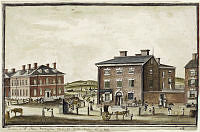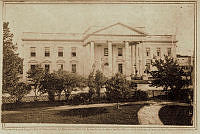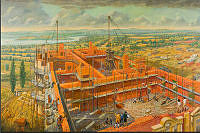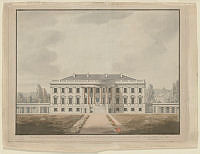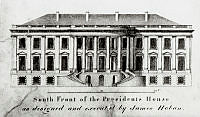In 1816, Irish-born author David Baillie Warden described half the population of Washington, D.C., as being Irish noting that the Irish laborers could easily be identified for their lack of familiarity with the English language. His population estimate was an exaggeration, but his observation that Irish immigrants stood out because of distinctive accents and colorful speech patterns was more accurate. Washington's Irish population swelled with the demand for laborers after the British destroyed the federal buildings in 1814, and increased with the surge of Irish émigrés to America's major cities in the nineteenth century.
Employment on nineteenth-century government building projects, such as roads, canals, bridges, and public works, was seasonal, and frequently subject to the whim of congressional appropriations. Hoban gave a voice in local politics to the great number of Irish immigrants in Washington who worked as both skilled and unskilled laborers, draymen, tavern keepers, blacksmiths, grocers, and boardinghouse proprietors. Hoban was a founder in 1802 of the Society of the Sons of Erin, a group that helped workers in need of housing, food, and medical services.












